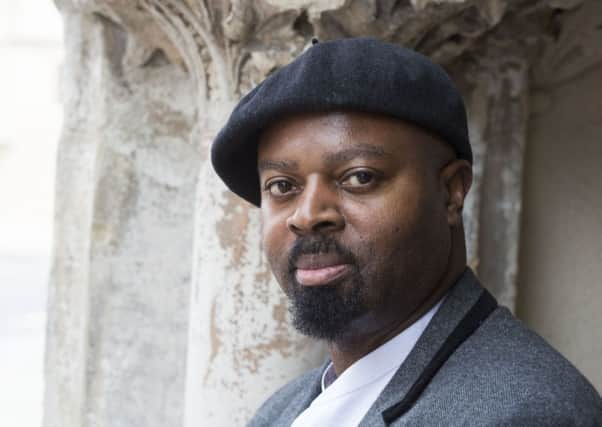Edinburgh Book Festival: Muriel Spark and the theme of freedom


The spirit of Muriel Spark has woven her way in and through this year’s Book Festival, not just in the events curated in honour of her centenary, but in the voices and thoughts of many writers who have verbally doffed their cap to the Grand Dame.
However, yesterday morning, she was again in the spotlight as her biographer Alan Taylor was joined by two other distinguished writers, Gabriel Josipovici and Kapka Kassabova, to discuss the themes of religion and exile in her work. Both writers have written introductions for the series of Spark novels currently being republished by Polygon, Kassabova for Territorial Rights, and Josipovici for The Mandelbaum Gate.
Advertisement
Hide AdAdvertisement
Hide AdSpark described herself as a “constitutional exile” and, while often inspired by her native land, she chose not to live there. Kassabova ventured that Spark was “a free spirit and a citizen of the world, before we talked about citizens of the world”. Both she and Josipovici have made their homes outside the countries of their birth, and Josipovici said he found it easier to identify with Spark’s writing than with that of “British writers who write about being rooted in their world”.
The question of Spark’s religious faith remains a thorny and fascinating one. Her family was Jewish, but she chose to convert to Catholicism in her 30s. Speaking at the Book Festival earlier in the week, former bishop Richard Holloway suggested she might be described as a “cafeteria Catholic”, picking and choosing the aspects of the faith which suited her.
From his knowledge of Spark, Taylor ventured that she might have liked that description. All three agreed that perhaps what she disliked most was the idea of being pigeon-holed, whether the label was Jewish, Scottish, Catholic or exile, to resist, in Kassabova’s words “the tyrannical need of society to define you by a single allegiance”.
An element sometimes overlooked in discussions about Spark, Josipovici said, was her grasp of joy. He suggested that, perhaps, what she found in the Roman Catholic Church was “a set of fixed rules which was somehow enormously releasing, which allowed for joyfulness and freedom.”
The theme of freedom – which runs throughout this year’s Book Festival – was prominent in Friday’s event with Ben Okri, who has edited a new anthology of political poetry, Rise Like Lions: Poetry for the Many. He said he had read some 10,000 poems in order to make his selection of 100, which includes writers as diverse as Ernest Hemingway and Joni Mitchell, Emily Dickinson and Bob Marley.
Advertisement
Hide AdAdvertisement
Hide AdOkri, who won the Booker Prize in 1991 for The Famished Road, said that when publisher Hodder approached him, he agreed immediately: “These are electrifying times for political poetry, times of uncertainty, chaos, fear, the rise of the Right wing, the demonisation of immigrants. Political poetry is not meant to send people out onto the street with banners, it often does something quieter than that, it can tweak our sensibility so we suddenly feel the heat of the world.”
His two-pronged Book Festival event also explored a different kind of freedom: that of the imagination, beginning with a performance by dancer Charlotte Jarvis as Okri read one of his own pieces. His latest book is The Magic Lamp: Dreams of Our Age, 25 stories written through extensive contemplation paintings by the artist Rosemary Clunie.
Speaking of the importance of cross-boundary collaboration in the arts, of stillness and learning to look, he said that contemplation could also be political. “We must look at how the world is made, and how it is ruined. The mood in Britain now is very different to the mood five or seven years ago, the change has been very gradual and we have not noticed it enough.”